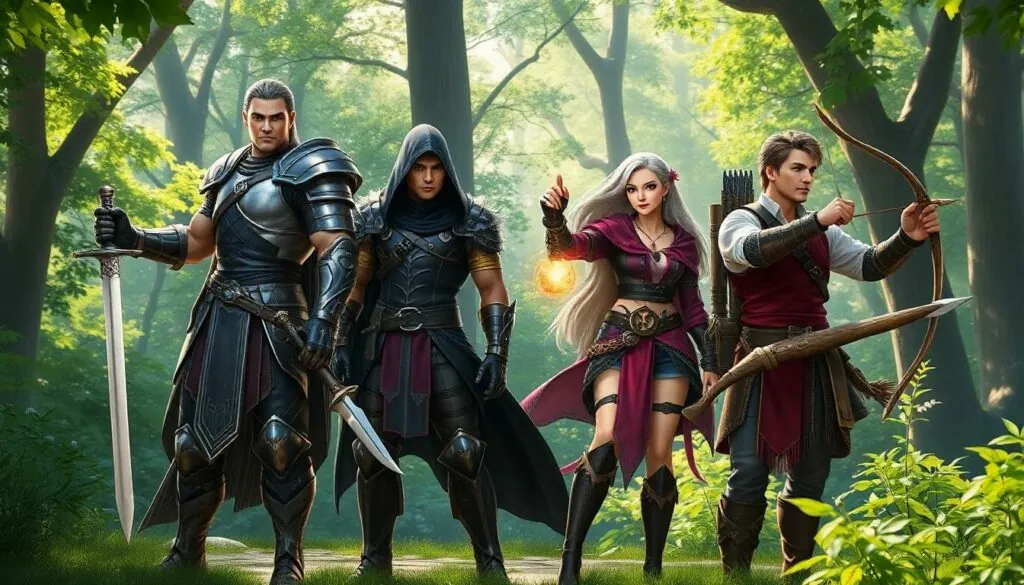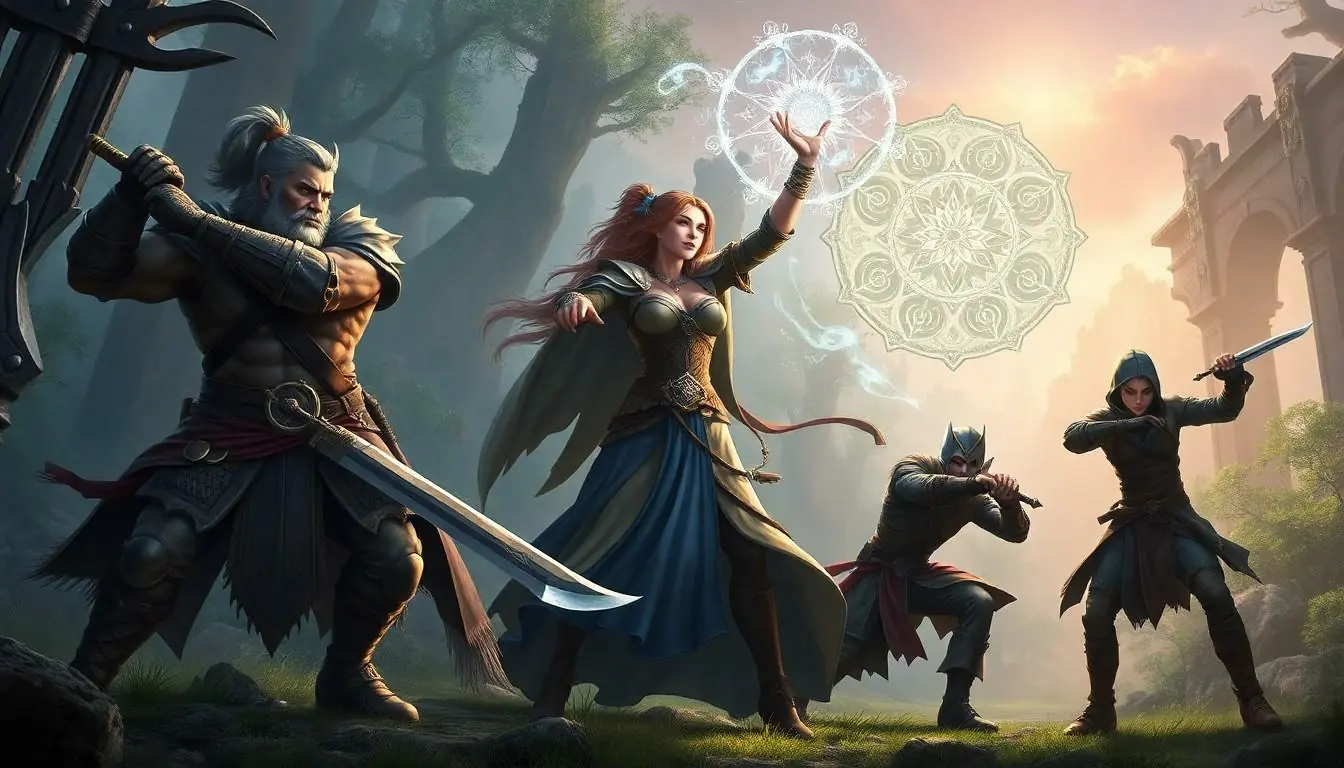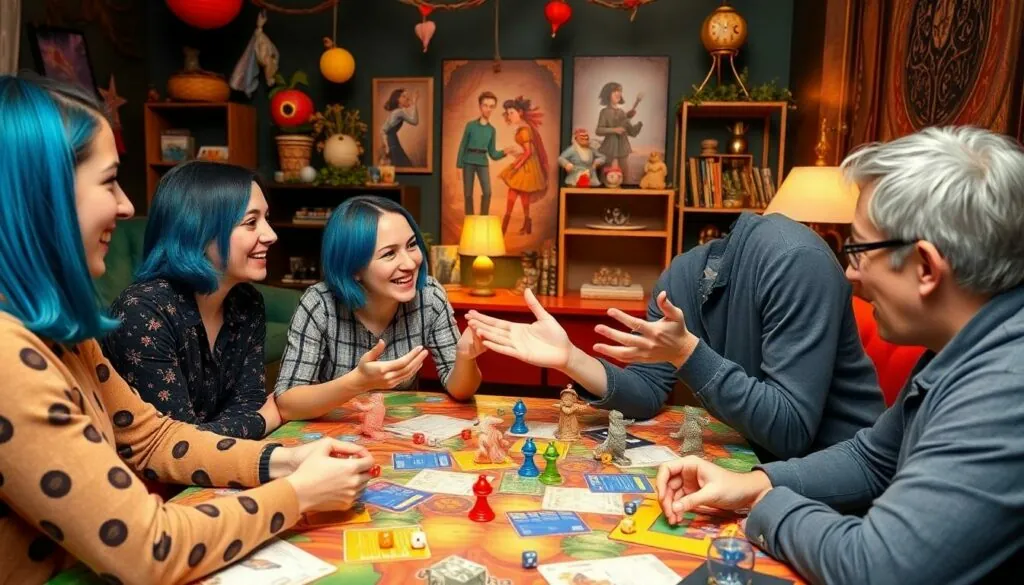Table of Contents
ToggleIn the vast world of role-playing games, choosing the right class can feel like picking a favorite child—impossible! Each class brings its own flavor to the table, from the mighty warrior swinging swords like a lumberjack at a tree to the sneaky rogue who could steal candy from a baby without breaking a sweat. With so many options, it’s easy to feel overwhelmed, like a kid in a candy store who can’t decide between gummy bears and chocolate bars.
This RPG classes list breaks down the most popular classes, helping players navigate the labyrinth of choices. Whether you want to unleash magical chaos or tank like a pro, there’s something for everyone. So grab your dice and prepare for an adventure as we dive into the wonderful world of RPG classes—where the only limit is your imagination (and maybe your dice rolls).
Overview of RPG Classes
RPG classes define the abilities and roles of characters within a game, shaping gameplay experiences. Each class offers unique skills and strengths, presenting players with distinct paths for their adventures. Warriors excel in close combat and often take on the role of a frontline tank, absorbing damage for their team. Healers prioritize support, restoring health and removing detrimental effects, ensuring the party remains strong in battle.
Magic users wield powerful spells to deal damage or control the battlefield, showcasing their versatility in combat. Rogues emphasize stealth and agility, employing cunning tactics and backstab mechanics to gain the upper hand. Rangers thrive in ranged combat, utilizing bows and traps to strike from a distance while maintaining mobility.
Classes like druids and sorcerers emphasize hybrid gameplay, combining spellcasting with physical abilities or nature-based powers. Bard classes enhance group dynamics through performance skills and buffing spells, creating an environment of synergy and support.
Players often hesitate at the wide selection of classes available, each catering to varying play styles. The choice influences character growth and strategy, impacting both individual gameplay and group success. Exploring these classes allows for creativity and experimentation, enabling personalized gaming experiences. Understanding the strengths and weaknesses of each class can significantly enhance role-playing tactics and collaboration in a party setting.
Choosing the right class sets the foundation for an engaging adventure, impacting how stories unfold within the game’s narrative. Players should consider their preferred playing styles when selecting a class, ensuring alignment with their approach to gameplay and teamwork.
Popular RPG Classes
Selecting an RPG class significantly impacts gameplay. Variety exists among classes, catering to diverse play styles.
Warrior Class
Warriors dominate the battlefield with exceptional strength and resilience. Mastery in melee combat enables them to withstand enemy attacks while dealing significant damage. Equipped with heavy armor, these characters serve as the party’s front line. Warriors often specialize in different fighting styles, such as two-handed weapons or shield and sword combinations. Their versatility allows them to adapt to various combat situations, whether it’s engaging hordes of foes or defending allies. Due to their sturdy nature, they frequently draw enemy attention, protecting more vulnerable teammates.
Mage Class
Mages wield powerful spells to control the battlefield. Known for magical prowess, they excel in dealing damage from a distance while manipulating elemental forces. Gathering arcane knowledge, they can cast devastating area-of-effect spells or single-target attacks. Their deep connection to magic often provides access to healing and enhancement spells, benefiting the entire party. Mages typically require strategic positioning, ensuring they remain safe while maximizing their spellcasting potential. This class encourages players to think creatively, using spells tactically to overcome obstacles.
Rogue Class
Rogues thrive in stealth and cunning. With agility and finesse, they can bypass defenses, striking enemies where it hurts most. Specializing in sneak attacks, these characters deal immense burst damage using daggers or ranged weapons. In addition to dealing damage, rogues often assume essential roles in exploration, disarming traps, and unlocking doors. Their skills in deception and charisma enhance their interaction with NPCs and fellow party members. With versatility in both combat and strategy, rogues provide unique advantages to any adventuring group.
Unique RPG Classes
Unique RPG classes offer distinct opportunities for players, each with specific abilities that shape gameplay experiences. Here’s a look at some of these creative classes.
Bard Class
Bards excel in performance and magic, using songs and stories to inspire allies. Their versatility allows them to fill various roles in a party, such as healing, damage dealing and support. Unique spells enhance group dynamics, providing buff effects that boost morale. Additionally, bards possess a range of skills, from persuasion to deception, enabling them to manipulate social interactions. This adaptability makes bards a fun choice for players seeking creativity in and out of combat situations.
Druid Class
Druids connect deeply with nature, harnessing the power of flora and fauna. Their unique shape-shifting ability allows them to morph into animals, providing both offensive and defensive skills. Healing spells rejuvenate allies, while nature-themed spells control the battlefield. Environmental manipulation enables druids to summon creatures and influence terrain, offering strategic advantages. These aspects grant druids flexibility in combat and support roles, making them essential for parties focusing on survivability.
Warlock Class
Warlocks forge pacts with powerful entities, gaining access to unique spells and abilities. This class emphasizes magical versatility through customizable spell lists. Each warlock may draw from different sources of power, tailoring their playstyle to suit personal preferences. Invocations enhance their capabilities, granting bonuses to spells or special skills. Players enjoy exploring the unique interactions and consequences of their pact, making warlocks intriguing for role-playing and strategic depth.
How to Choose the Right RPG Class
Assessing personal play style aids in selecting an RPG class. Players can identify preferences for combat, magic, or support roles. Warriors attract those who enjoy aggressive gameplay and strength. Rogues appeal to individuals who prefer stealth and cunning strategies.
Understanding class strengths significantly impacts gameplay decisions. Mages excel in ranged damage and crowd control, appealing to strategic thinkers. Rangers offer a mix of ranged combat and nature abilities, ideal for players who value versatility. Healers play a crucial support role, attracting those who enjoy team collaboration.
Evaluating party composition enhances the selection process. Players should consider other team members’ classes to create a balanced group. A mix of responsibilities ensures success in challenging encounters. Knowing one’s role helps individuals contribute effectively, whether as a damage dealer, tank, or support character.
Exploring unique class traits reveals varied gameplay experiences. Druids present shape-shifting for offense and support, adding depth to gameplay. Bards utilize performance skills, enriching group dynamics and enhancing their party’s abilities. Warlocks provide flexibility through customizable spells, appealing to creative players.
Reflecting on long-term enjoyment assists in class choice. Each RPG class offers distinct paths for character growth. Players should envision their journey and how they wish to experience the game. Selecting the right class means laying the foundation for an engaging adventure, aligning gameplay with personal preferences and teamwork dynamics.
Conclusion
Choosing the right RPG class is essential for crafting an engaging and enjoyable gaming experience. Each class offers unique strengths and abilities that shape gameplay and character development. By understanding personal play styles and party dynamics, players can make informed decisions that enhance their adventures.
Whether one prefers the brute strength of a warrior or the cunning of a rogue, the right class can significantly impact both individual performance and group success. Embracing the variety of options available allows players to explore diverse strategies and create memorable stories in their role-playing journeys.





